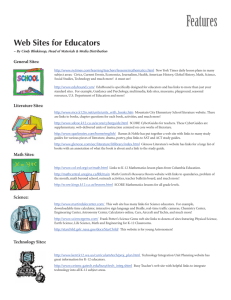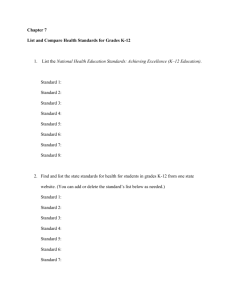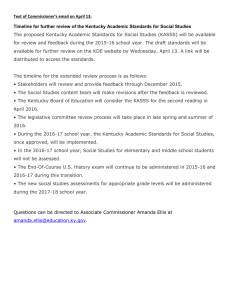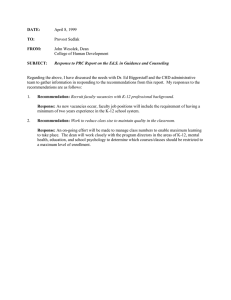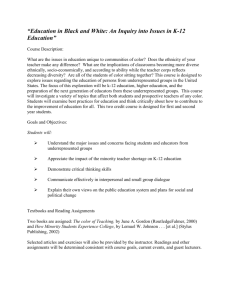Outcomes for INITIAL-LEVEL Teacher Preparation . Caring
advertisement
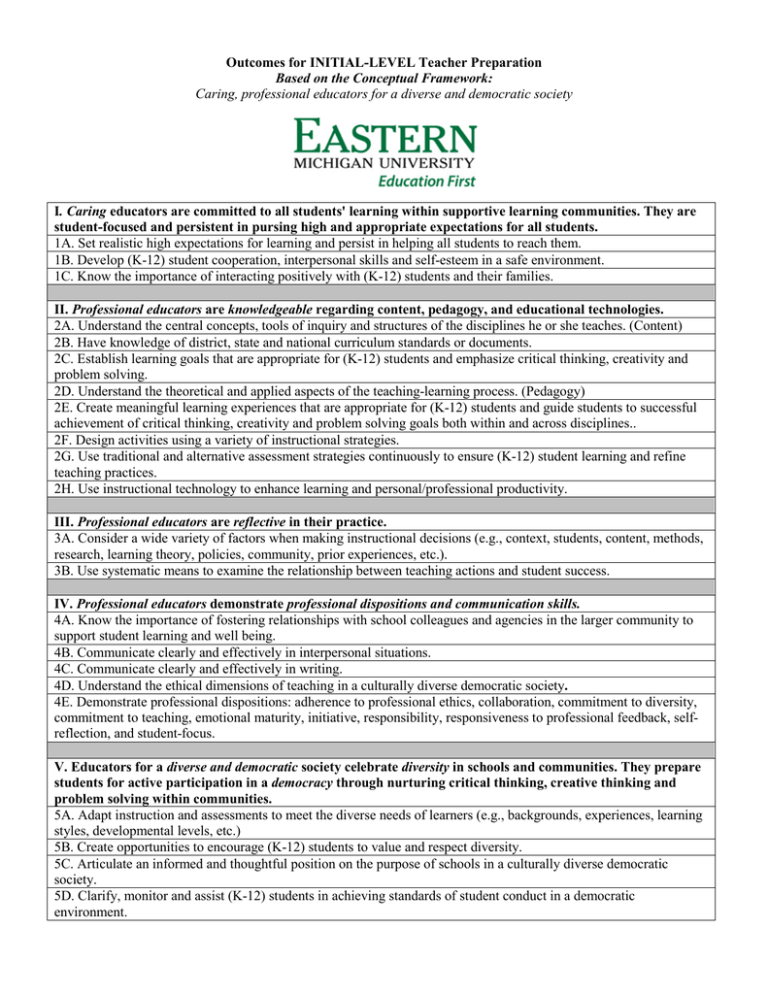
Outcomes for INITIAL-LEVEL Teacher Preparation Based on the Conceptual Framework: Caring, professional educators for a diverse and democratic society I. Caring educators are committed to all students' learning within supportive learning communities. They are student-focused and persistent in pursing high and appropriate expectations for all students. 1A. Set realistic high expectations for learning and persist in helping all students to reach them. 1B. Develop (K-12) student cooperation, interpersonal skills and self-esteem in a safe environment. 1C. Know the importance of interacting positively with (K-12) students and their families. II. Professional educators are knowledgeable regarding content, pedagogy, and educational technologies. 2A. Understand the central concepts, tools of inquiry and structures of the disciplines he or she teaches. (Content) 2B. Have knowledge of district, state and national curriculum standards or documents. 2C. Establish learning goals that are appropriate for (K-12) students and emphasize critical thinking, creativity and problem solving. 2D. Understand the theoretical and applied aspects of the teaching-learning process. (Pedagogy) 2E. Create meaningful learning experiences that are appropriate for (K-12) students and guide students to successful achievement of critical thinking, creativity and problem solving goals both within and across disciplines.. 2F. Design activities using a variety of instructional strategies. 2G. Use traditional and alternative assessment strategies continuously to ensure (K-12) student learning and refine teaching practices. 2H. Use instructional technology to enhance learning and personal/professional productivity. III. Professional educators are reflective in their practice. 3A. Consider a wide variety of factors when making instructional decisions (e.g., context, students, content, methods, research, learning theory, policies, community, prior experiences, etc.). 3B. Use systematic means to examine the relationship between teaching actions and student success. IV. Professional educators demonstrate professional dispositions and communication skills. 4A. Know the importance of fostering relationships with school colleagues and agencies in the larger community to support student learning and well being. 4B. Communicate clearly and effectively in interpersonal situations. 4C. Communicate clearly and effectively in writing. 4D. Understand the ethical dimensions of teaching in a culturally diverse democratic society. 4E. Demonstrate professional dispositions: adherence to professional ethics, collaboration, commitment to diversity, commitment to teaching, emotional maturity, initiative, responsibility, responsiveness to professional feedback, selfreflection, and student-focus. V. Educators for a diverse and democratic society celebrate diversity in schools and communities. They prepare students for active participation in a democracy through nurturing critical thinking, creative thinking and problem solving within communities. 5A. Adapt instruction and assessments to meet the diverse needs of learners (e.g., backgrounds, experiences, learning styles, developmental levels, etc.) 5B. Create opportunities to encourage (K-12) students to value and respect diversity. 5C. Articulate an informed and thoughtful position on the purpose of schools in a culturally diverse democratic society. 5D. Clarify, monitor and assist (K-12) students in achieving standards of student conduct in a democratic environment.
